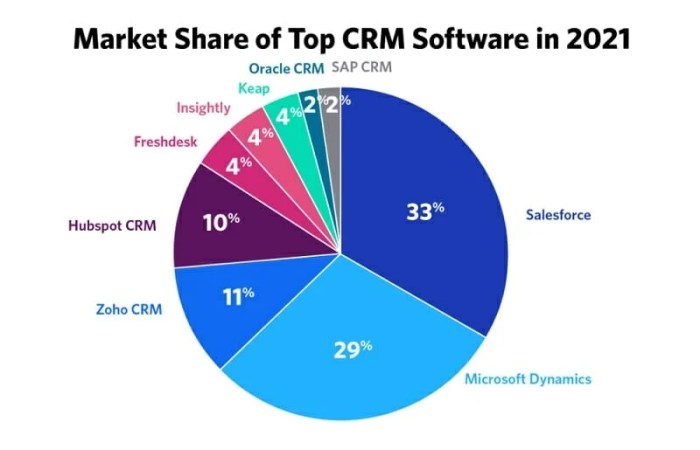Top CRM Solutions for Small Businesses: The Best Tools to Streamline Operations – sounds kinda boring, right? Wrong. Think of it like this: you’re juggling flaming chainsaws (clients, orders, emails), and a CRM is the safety net that catches you before you become a viral video. This isn’t just about software; it’s about survival, growth, and actually having a life outside the office. We’re diving deep into the best CRMs to help your small business thrive, not just survive.
From understanding the core functionalities of a CRM to navigating the complexities of choosing the perfect system for your unique needs, this guide will equip you with the knowledge and insights to make informed decisions. We’ll compare top contenders, explore crucial features, and even share real-world success stories that prove the transformative power of a well-chosen CRM. Get ready to ditch the chaos and embrace the efficiency.
Introduction
Running a small business is a whirlwind of activity, juggling everything from marketing and sales to customer service and operations. In this chaos, it’s easy to lose track of vital customer interactions and valuable business insights. This is where a Customer Relationship Management (CRM) system steps in, offering a much-needed lifeline to streamline operations and foster growth. A CRM is essentially a centralized database that manages all interactions with current and potential customers, providing a holistic view of your business relationships.
CRM systems offer a range of core functionalities, including contact management, lead tracking, sales pipeline management, marketing automation, and reporting and analytics. They help you organize customer data, track interactions, and automate repetitive tasks, freeing up valuable time and resources.
Challenges Faced by Small Businesses Without a CRM System
Small businesses operating without a robust CRM often struggle with disorganization and inefficiency. Imagine trying to manage customer information scattered across spreadsheets, email inboxes, and sticky notes – a recipe for missed opportunities and frustrated customers. Without a centralized system, tracking leads, managing sales pipelines, and analyzing customer behavior becomes incredibly challenging, hindering growth and profitability. The lack of a clear overview of customer interactions can lead to inconsistent service, missed sales opportunities, and ultimately, damage to the brand’s reputation. Furthermore, decision-making becomes hampered by a lack of reliable data and insights. For example, a small bakery without a CRM might struggle to identify its most loyal customers or understand which marketing campaigns are most effective.
Benefits of Implementing a CRM for Small Businesses
Implementing a CRM system offers significant advantages for small businesses, primarily boosting efficiency and improving customer relationships. A centralized system streamlines workflows, automating repetitive tasks like sending follow-up emails or scheduling appointments. This frees up valuable time for employees to focus on higher-value activities, such as building relationships with customers and developing new business opportunities. Imagine the time saved by automating email marketing campaigns or automatically updating customer information across different platforms. Improved efficiency translates directly into increased productivity and reduced operational costs.
Moreover, a CRM system empowers businesses to cultivate stronger customer relationships. By providing a 360-degree view of each customer, businesses can personalize interactions, anticipate needs, and provide more tailored support. For instance, a small clothing boutique using a CRM could track customer preferences and send personalized recommendations, increasing customer loyalty and driving sales. The improved customer experience fosters positive word-of-mouth marketing and builds a stronger brand reputation. The ability to segment customers based on their behavior and preferences allows for more targeted marketing campaigns, maximizing ROI and minimizing wasted resources. Ultimately, a CRM system contributes to enhanced customer satisfaction, leading to increased repeat business and improved overall profitability.
